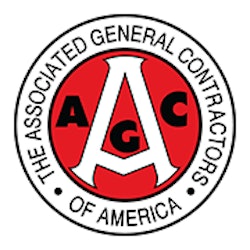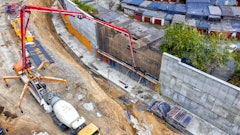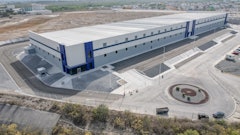
The failure of the Super Committee sets the stage for a busy year for tax policy, with a number of important tax rates and expenditures set to expire on Jan. 1, 2012.
First, the annual “Tax Extenders” package expires at the end of the 2011. This bill includes popular tax expenditures that expire every year such as the research and development tax credit (which can be applied to unique designs, structures, or construction practices) and accelerated depreciation for restaurant and leasehold improvements, both of which impact the construction market. Congress typically renews these tax provisions late and is forced to make them retroactive to the first of the year. The fact that tax expenditures like these were targeted by the super committee and the poor track record of timely completion adds to the uncertainty that adversely impacts business decision making.
Further, Congress often extends the Alternative Minimum Tax (AMT) “patch” along with the tax extenders to protect millions of middle-class taxpayers from being hit with higher taxes. The AMT patch is currently in place for 2011 but not for 2012 or beyond. This provision will likely have the largest impact on AGC member companies.
Second, the 100 percent bonus depreciation and enhanced section 179 expensing levels expire at the end of 2011. Starting Jan. 1, 2012, the bonus depreciation returns to 50 percent, while section 179 reverts from $500,000 to $125,000 in 2012 with phase out limits lowering from $2 million to $500,000. Bonus depreciation is an immediate deduction of the cost of new equipment, such as construction equipment, purchased and placed in service whereas section 179 allows a deduction for the cost of new or used equipment.
Likely to grab the headlines over the course of the next few weeks is the expiration of the reduction in payroll withholding which impacts every wage earner and the continued extension of unemployment benefits, which has been extended to 99 weeks for the last two years.
At the end of 2012, Congress must again face the expiration of the Bush-era tax cuts which were extended at the end of 2010. While President Obama supported their extension in 2010, there is a fundamental disagreement between Republicans and Democrats about whether to extend the tax rates for all taxpayers beyond 2012. In addition, there are two new income taxes going into effect on January 1, 2013 that were enacted in the 2010 healthcare law on high earners, which could make the top individual rate higher than 44 percent, up from 35 percent today. A tax increase of nearly 10 percentage points on individuals will have a significant impact on the nearly two-thirds of construction companies organized other than as a C corporation and thus pay business taxes at the individual level.
The expiration of the tax rates, along with the continued policy debate on deficit reduction has already lead to a serious discussion on comprehensive tax reform with both the House and Senate tax writing committees having already held a series of hearings on the topic and various proposals having already been unveiled. Both sides of the aisle agree the policy debate should take place, and there is sometimes agreement on keeping corporate and individual tax rates as low as possible by reducing or eliminating tax expenditures (i.e., deductions and credits). However, like the Super Committee effort, reaching a consensus even when faced with a deadline – and next year’s looming Presidential and Congressional election – may be impossible. As a result, both businesses and individuals may face another year of tax uncertainty during which they hold on to cash and postpone or cancel decisions that would otherwise lead to increased demand for construction.
AGC believes that comprehensive reform and tax certainty will have the best possible impact on the economy and the construction industry.
Super Committee Fails: Prolonging Construction-Market Instability
Super Committee Fails: Where Automatic Cuts Will Come
Super Committee Fails: Effect on Infrastructure Spending
Super Committee Fails: Changes to Today's Congressional Agenda


























